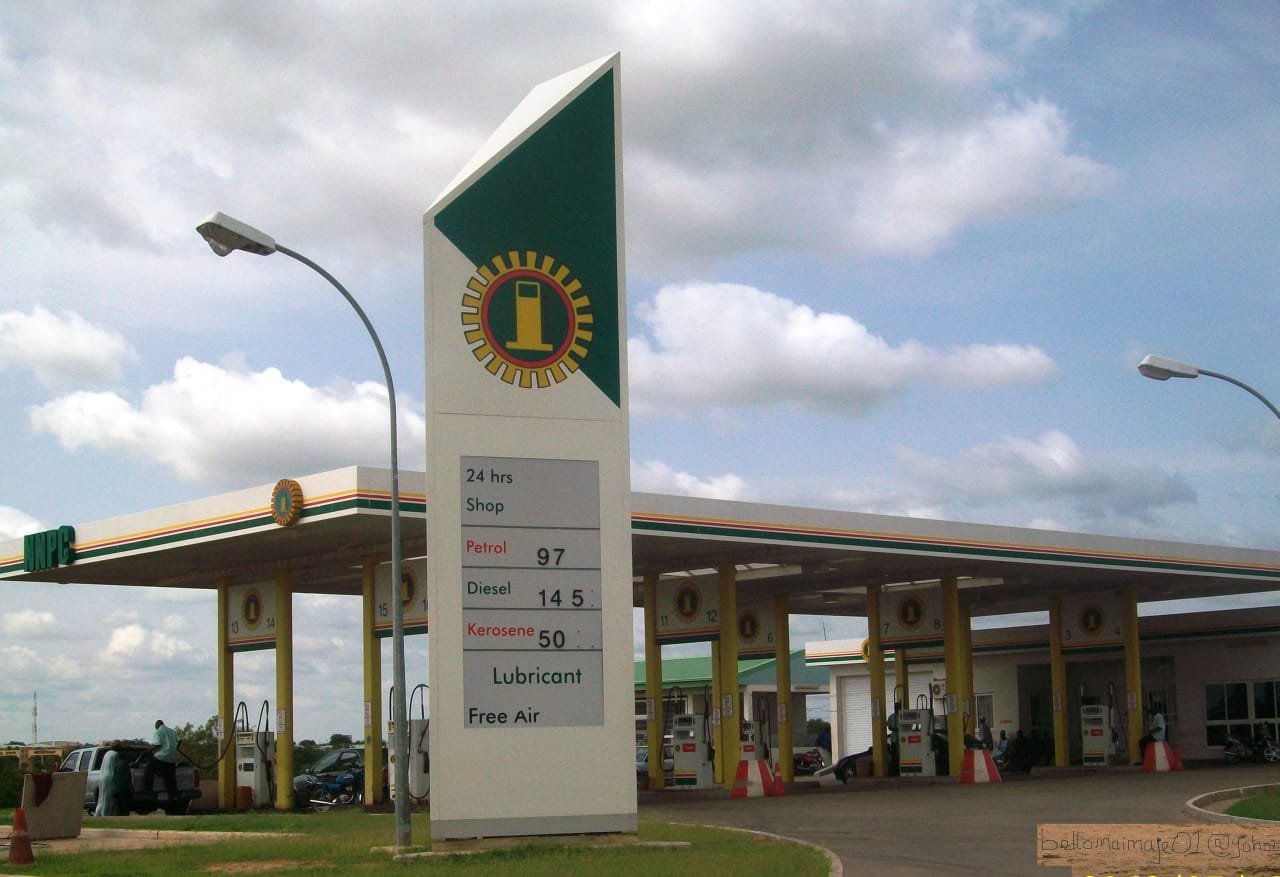PAG Felicitates Muslims on Commencement of Ramadan Fast
February 18, 2026TOP TEN MUSLIM UNIVERSITIES IN AFRICA
February 14, 2026ANALYSIS: Why Nigeria GDP is not the best in Africa Despite having the largest market
February 10, 2026NNPCL raises petrol pump price across Nigeria
NNPCL raises petrol pump price across Nigeria

The Nigerian National Petroleum Company Limited (NNPCL) has approved an increase in the nationwide pump price of Premium Motor Spirit popularly known as petrol.
The approval goes into effect on Wednesday, May 31, 2023, according to a circular issued by the NNPCL today.
In a circular seen by Integrity News, the petrol pump price for Abuja was increased from N194 to N537 per litre, while Nassarawa moved from N189 to N537 per Litre.
The pump price in Kogi was raised from N189 to N537, in Benue from N189 to N537, in Niger state from N189 to N537, in Adamawa from N199 to N550 per litre, and in Taraba it jumped from N199 to N550 per litre.
Yobe was raised from N199 to N557, while Kano was raised from N194 to N540. The price of a litre of petrol in Kaduna has risen from N194 to N540, and in Katsina from N194 to N540. Sokoto rose from N194 to N540, whereas Jigawa increased from N194 to N540. Kebbi state moved from 194 to N545. The price in Zamfara changed from N194 to N540. In Abia, the pump price of petroleum jumped from N189 to N515; in Imo, it increased from N189 to N515.
In other states, the price in Anambra moved from N189 to N520, Enugu from N189 to N520 and Ebonyi also jumped from N189 to N520. Rivers from N189 to N511, Akwa Ibom moved from N194 to N515, and Bayelsa from N189 to N515.
What is NNPCL saying?
On Wednesday, the NNPCL confirmed the price modification in a press release issued by its Chief Corporate Communications Officer, Garba Deen Muhammad, saying it changed the pump prices of PMS across its retail outlets in line with current market realities.
“NNPC Limited wishes to inform our esteemed customers that we have adjusted our pump prices of PMS across our retail outlets in line with current market realities. The statement said.
“As we strive to provide you with the quality service for which we are known, it is pertinent to note that prices will continue to fluctuate to reflect market dynamics.
“We assure you that NNPC Limited is committed to ensuring a ceaseless supply of products.
“The company sincerely regrets any inconvenience this development may have caused.
“We greatly appreciate your continued patronage, support, and understanding during this time of change and growth,” it said.
Who removed the controversial subsidy on petrol?
Recall that Mr Tinubu said on Monday in his inaugural address at Eagle Square in Abuja that the fuel subsidy regime will be phased out because it was unsustainable.
Integrity News reported that Festus Keyamo, the former Minister of State for Labour and Employment, explained that the Tinubu-led administration simply inherited a situation in which there was no provision for subsidy in the 2023 Appropriation Act as of June 2023 and the Petroleum Industry Act.
He faulted critics for blaming the removal of subsidy on petrol on the new administration.
He went on to say that the money invested into fuel subsidy is sufficient to create mass employment and raise the minimum wage.
He tweeted: “A section of the Press is mischievously twisting the narrative to read that TINUBU’s GOVERNMENT HAS REMOVED SUBSIDY. That is NOT CORRECT. TINUBU’s govt has merely inherited a regime where there was no provision for subsidy in the 2023 Appropriation Act as from June, 2023 and the Petroleum Industry Act which is now extant has no provision for subsidy. President Tinubu merely acknowledged this state of affairs in his inaugural speech at the Eagle Square.
“So any advocate of subsidy should convince the Nigerian people why President Tinubu should start on a note of illegality by promising to reintroduce something which the law has taken away. They should also convince the Nigerian people why President Tinubu should embark on a present illegality that gulped $10 billion of our scarce or unavailable resources in 2022 alone.
“Those claiming to defend the right or welfare of workers should convince the Nigerian people that $10 billion injected into the economy yearly will not jumpstart the economy enough as to create massive jobs and even increase the same minimum wage they complain about.
“That is the conversation the Nigerian people are prepared to have now, ” he concluded.








